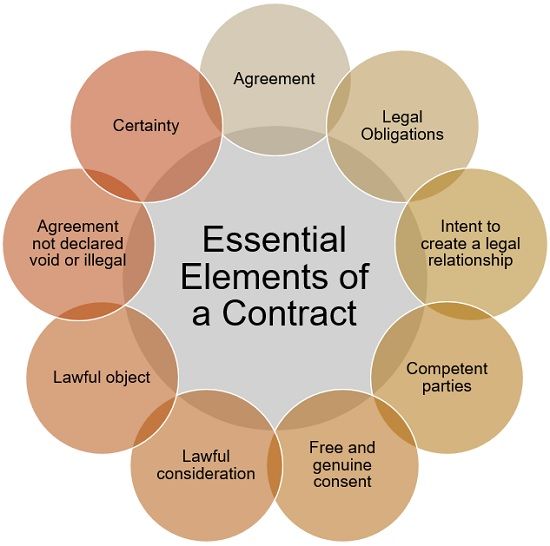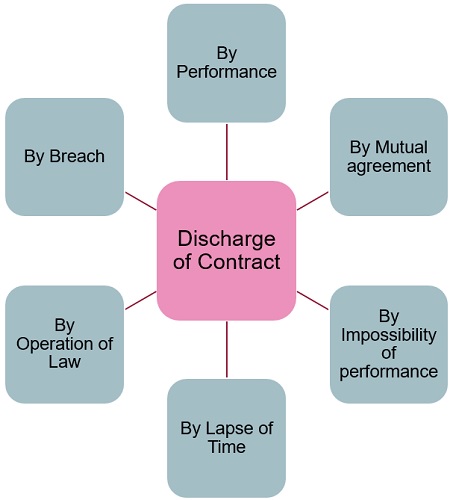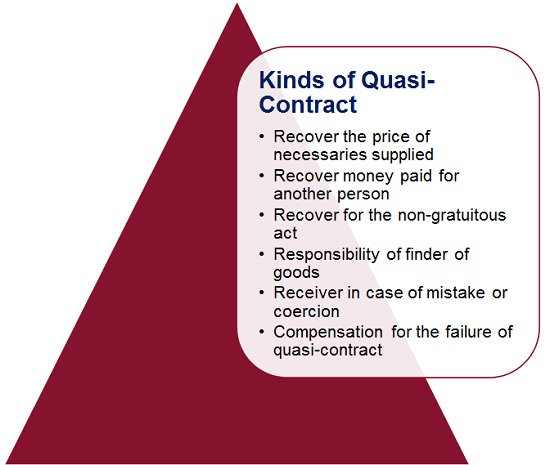Difference Between Limited and Continuing Contract Education
 While in a contract, the presence of agreement between the parties is a must. But the presence of an agreement is not necessary in the case of quasi-contract. A quasi-contract is legally imposed with an aim of preventing unjust enrichment. Due to this reason we call it a contract implied by law.
While in a contract, the presence of agreement between the parties is a must. But the presence of an agreement is not necessary in the case of quasi-contract. A quasi-contract is legally imposed with an aim of preventing unjust enrichment. Due to this reason we call it a contract implied by law.
We usually enter into contracts daily. Think of a situation when you go to a restaurant and order hot coffee, you enter into a contract. Likewise, when you order something online, then also you enter into a contract.
In this post, you will get to know the difference between contract and quasi-contract,
Content: Contract Vs Quasi Contract
- Comparison Chart
- What is a Contract?
- Elements
- Discharge of Contract
- What is Quasi Contract?
- Features
- Kinds
- Key Differences
- Conclusion
Comparison Chart
| Basis for Comparison | Contract | Quasi Contract |
|---|---|---|
| Meaning | The contract refers to an agreement that is enforceable by law. | Quasi-Contract is one that is not exactly an agreement but it is similar to an agreement. |
| Essential elements of the formation of a valid contract | Present | Absent |
| Consent | Both parties give their consent voluntarily and freely. | None of the parties gives their consent voluntarily. |
| Liability | It exists as per the terms and conditions that parties state and agree upon. | It exists through the party's conduct. |
| Entry to contract | Voluntary | Imposed by law |
| Rights | Both rights in rem and rights in personam | Rights in personam |
What is a Contract?
The contract implies an agreement between two or more parties that creates obligations enforceable as per law. The Indian Contract Act provides remedies for the breach of contract. Also, it holds the performance of a promise as a duty.
The parties are legally bound by the contract when there is an exchange of a promise for adequate consideration.
What is Adequate Consideration?
It refers to the benefit that a party gets, which induces them reasonably and fairly to perform the contract.
Elements of a Contract

- Agreement: An agreement takes place between parties when one party makes a proposal to another. And then that party gives his acceptance on that. Here a plurality of persons and consensus-ad-idem is important.
- Legal Obligations: To create a contract, the agreement results in a legal obligation. Here 'legal obligation' means a duty enforceable by law.
- Intent to create a legal relationship: The parties must intend to create legal relations. They must be aware of the fact that the agreement can attract legal consequences and it can create legal obligations.
- Competent parties: The parties must be competent enough to contract, in a court of law. He should not be minor or disqualified from contracting.
- Free and genuine consent: Free Consent implies the parties must agree to the same thing in the same sense. Further, the consent of the parties should be influenced by coercion, undue influence, fraud, misrepresentation or mistake.
- Lawful consideration: Consideration is the price that a party pays for the promise of another. The legal enforceability of the parties depends on the fact that each party gives something and gets something.
- Lawful object: To form a valid contract the object must be lawful. The object for which the agreement has been entered into should not be fraudulent, illegal, immoral or opposed to public policy.
- Agreement not declared void or illegal: Agreements in restraint of marriage, restraint of trade and agreement by way of wager are expressly decreased void.
- Certainty: The agreements whose meaning is uncertain, vague or not capable of being certain are void.
Discharge of Contract
Discharge of contract is the termination of the contract-related obligations of parties to the contract. At the time of discharge of the contract, the parties are relieved from the contract. The different ways of discharge of contract are by:
- Performance: It can be actual performance or attempted performance.
- Mutual Agreement: It may include novation, recission, alteration and remission.
- Impossibility of performance: The impossibility can be existing at the time of contract or it can be a supervening impossibility.
- Lapse of time
- Operation of law
- Breach: It can be an actual breach or anticipatory breach.
Also Read: Difference Between Contract and Agreement
What is Quasi Contract?
Quasi Contract refers to any transaction between parties wherein no actual contract exists between the parties but the law creates a number of rights and obligations amidst them which is akin to a contract.
To put it simply, it is an obligation that the law creates or imposes for the sake of justice even when there is no such contract. This is because of the relationship or because one of the parties would get an unfair or unjust advantage. The result of such an obligation is similar to the one which a contract creates.
So, we could say that it is not a contract but a remedy through which the plaintiff recovers the benefit provided to the defendant.
Quasi Contracts are called so because the obligations related to such transactions do not fall in the category of torts or contracts. However, they are recognizable as contracts in a court of law.
A situation in which law imposes upon a party an obligation similar to that resulting from an actual contract, based on natural justice.
Principles
It relies upon the principles of equity and justice. This implies no person will be allowed to benefit himself in an unjustified way, at the expense of another person.
Features of Quasi Contract
- It is not a result of any agreement, as it is imposed by law.
- It depends on the grounds of duty of the party and not the promise of the party.
- The right under quasi-contract is a right to the money, and in most cases though not always a liquidated sum of money.
- In this, the right is available against a particular person and not against the world.
- Filing of suit for its breach in the same manner as in the case of a complete contract.
Kinds of Quasi-Contract
The kinds of quasi-contracts are in terms of rights with regard to:
Recover the price of necessaries supplied
A person who provided necessary to any party incompetent to contract or any person dependent on that incompetent person has the right to get it recovered out of the property of such incompetent party. Here, the word 'necessaries' covers the items of a person's needs and includes items which are needed to maintain a particular person's state, degree and status.
Recover money paid for another person
A person who at his own will makes payment on behalf of another person who was legally bound to pay it. Then the person who makes payment has the right to recover the same from the party on whose behalf he made such payment.
Recover for the non-gratuitous act
Rights to recover in this case arise when the three conditions are met:
- Lawful performance of the act or delivery of the item.
- A person who performed the act or delivered the item has no intention to do so gratuitously, i.e. free of cost.
- The person for whom such act is performed or the item is delivered has enjoyed the benefit of it.
Responsibility of finder of goods
An individual who discovers goods that belong to another individual and he takes those goods into his custody. The responsibility of the finder of goods is just like that of a bailee.
Receiver in case of mistake or coercion
If a person pays money or delivers anything to another person out of mistake or under coercion, the latter must repay or return it to the former.
Compensation for the failure of quasi-contract
Injury to any person due to the failure in performance of a quasi-contract has the right to receive compensation from the defaulting party, just like in the case of a normal contract.
Also Read: Difference Between Express and Implied Contract
Key Differences Between Contract and Quasi Contract
- A basic contract is characterized by an offer and acceptance with free consent. Oppositely, a quasi-contract is not a contract at all, as it lacks one or more elements of a contract.
- In the case of a contract, the obligation is a result of the consent of the parties. Whereas in the case of a quasi-contract, the obligation is a result of the operation of law on the principle of equity.
- The essential elements of a valid contract are present in a basic contract. On the other hand, a quasi-contract lacks essential elements of a contract.
- In a contract, the consent of the parties is free and voluntary. Conversely, the consent of the parties is not voluntary.
- In the case of a contract, the liability of the parties exists as per the terms and conditions laid down and agreed upon. As against, in the case of quasi-contract, the liability of the parties exists through their conduct. Further, it relies upon morality, natural justice, equity and good conscience.
- The creation of a contract is voluntary by parties. Whereas a quasi-contract comes into existence by operation of law.
- In the case of a contract, the parties have both rights in rem (against the whole world) and rights in personam (against the person or enterprise). Conversely, in the case of quasi-contract, give the party the right in personam (against the person or enterprise).
Conclusion
All in all, a contract is an agreement that creates and defines obligations between parties. Conversely, a quasi-contract is a legal alternative to a contract.
Source: https://keydifferences.com/difference-between-contract-and-quasi-contract.html
0 Response to "Difference Between Limited and Continuing Contract Education"
Post a Comment